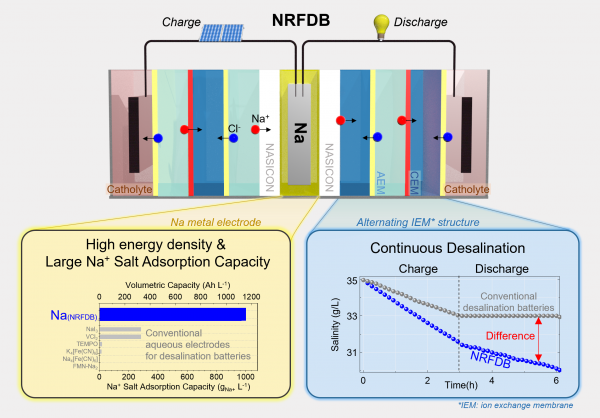Continuous desalination and high-density energy storage: Na metal hybrid redox flow desalination battery
- Journal
- Chemical Engineering Journal
- Year
- 2024
Redox flow desalination batteries (RFDBs) provide sustainable and energy-efficient solutions for simultaneously resolving energy storage and desalination challenges. However, harnessing these bifunctional batteries is plagued by two major issues: 1. Liquid redox electrodes cause low energy density (<329 Ah/L), increasing system volume. 2. Intermittent desalination during charge or discharge phases hampers overall productivity. Our study introduces a novel configuration, replacing the liquid electrode with sodium metal, substantially increasing the energy density (1128 Ah/L). We also implement continuous desalination by interlaying alternating cation and anion exchange membranes between electrodes. Benefiting from the high energy density battery capable of continuous desalination, it demonstrates 95 % ion removal by treating natural seawater throughout the cyclic operation while consuming 1.40 min Wh/molNaCl (competitive with the conventional seawater reverse osmosis technology (4.06 Wh/molNaCl)). Our work is a critical step towards the practical adoption of desalination batteries, enhancing energy and environmental sustainability.

